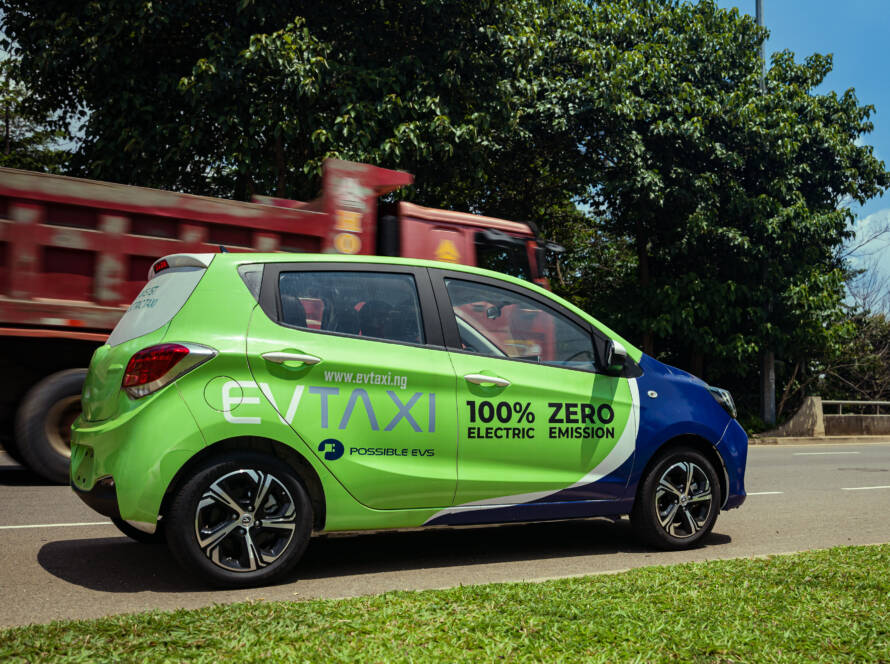Africa is witnessing a surge in efforts towards embracing electric vehicles (EVs) as a solution to curb emissions and foster sustainable transportation. With rising cost of fuel and transportation accounting for 10 percent of the continent’s greenhouse gas emissions, there’s a growing recognition of the need for cleaner, cheaper mobility solutions.
In response to this pressing challenge, several countries in sub-Saharan Africa have set ambitious electrification targets for vehicles and introduced incentives to promote EV adoption. Nigeria, notably, was the first African country to launch a comprehensive renewable energy plan, which included a pathway to replace all traditional vehicles with electric cars by 2060. Rwanda has also implemented tax exemptions for EV sales, signaling a shift towards greener transportation practices. Furthermore, there has been an emergence of burgeoning start-ups focused on EV technology, from Possible EVS in Nigeria to Roam in Kenya to Ampersand in Rwanda.
However, Africa’s journey towards electric mobility is not without its challenges. One significant hurdle is the reliability of electricity supply in certain regions, despite improvements in access rates. This issue highlights the importance of ongoing infrastructure development to ensure a stable and consistent power supply for EV charging networks.
Affordability remains another critical barrier to widespread EV adoption. With comparatively low household incomes and limited access to affordable financing options, many consumers find EVs financially out of reach. Addressing this challenge requires innovative approaches to make EVs more accessible and affordable to a broader segment of the population.
Additionally, the prevalence of used vehicles poses a unique obstacle to the transition to EVs in Africa. In many countries, the majority of vehicle sales comprise used vehicles, driven by affordability constraints and lax regulations on vehicle imports. Strengthening regulations and implementing stricter standards for vehicle imports are essential steps to level the playing field for EVs and discourage the influx of old, polluting vehicles.
The following are additional key metrics we observed about the progress of EV adoption in Africa
- Projected growth: The EV market in Africa is estimated to grow by 17.33% from 2024 to 2028, reaching a market volume of $162.2 million in 2028.
- Regional leaders: Countries like South Africa, Morocco, Nigeria, Egypt, Ghana, and Rwanda are leading the way in EV adoption.
- Mainstream manufacturers: Companies such as Volkswagen AG, BMW AG, Tesla Inc., and Geely Auto Group dominate the African EV market. New indigenous manufactures such as Possible EVS in Nigeria, Ampersand in Rwanda, and Roam (Obipus) in Kenya have started manufacturing in specific niches such as two wheelers, three-wheelers, bus conversions, but in very small-scale.
- Expanding product lines: Audi has introduced six e-tron models to the South African market, showcasing a variety of all-electric vehicles
- Local production: Morocco commenced electric vehicle production with the Rock-e model, an update of Citroën’s Ami EV microcar.
- Affordability concerns: Although EVs are becoming more affordable, they remain relatively expensive compared to conventional vehicles in Africa.
- Limited availability: Most EV models are only available in a few select countries, limiting choices for consumers.
- Low public awareness: Many Africans are either completeley unaware of EVs or unfamiliar with the technology. This is a challenge to widespread adoption. Companies such as Possible EVS strives to tackle this challenge with its Electric Vehicle Experience Center, the first in Africa dedicated to EV awareness and advocacy.
- Lack of charging infrastructure: Insufficient charging infrastructure remains a primary challenge for EV adoption in Africa.
In essence, Africa’s pursuit of electric mobility represents a transformative shift towards a cleaner, greener future for transportation, albeit one that requires concerted efforts and collaboration to realize its full potential.
As we navigate these hurdles, we must continue to prioritize the development of supportive policies, infrastructure, and financial mechanisms to facilitate the transition to electric mobility in Africa.


1 Comment
https://lvivforum.pp.ua/
Hello fantfastic blog! Does running a blpog similar to this require a great deal of work?
I’ve no knowledge of programming however I was hoping
to start my own blog soon. Anyhow, should you have any ideas or techniques for new blog
owners please share. I know this is offf topic however I just wanted
to ask. Thanks! https://lvivforum.pp.ua/